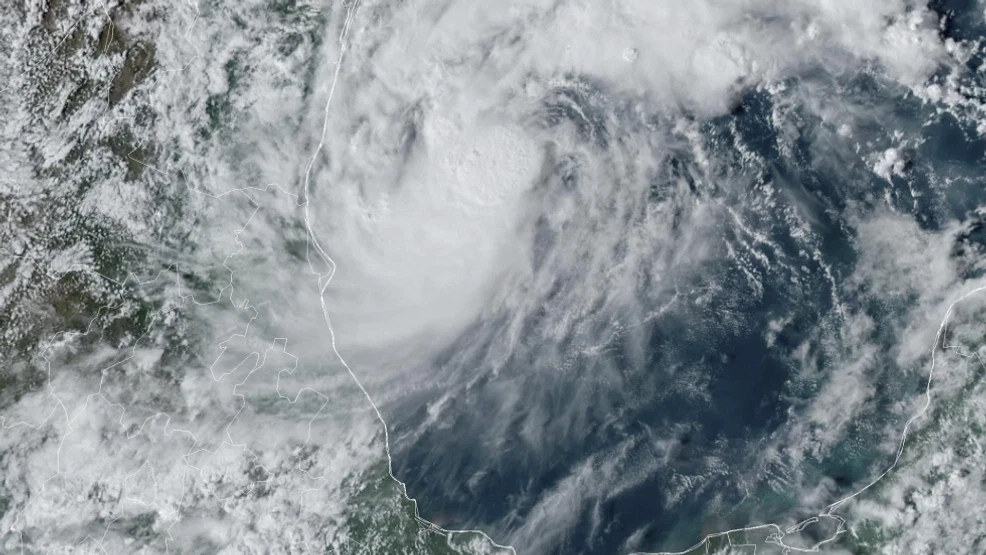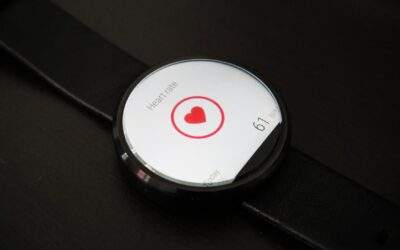Thousands of residents along the West coast of Florida and along the recent path of Hurricane Helene are still recovering the effects of the storm.
Hurricane Milton is now threatening a direct hit to the west central Florida coast.
Advanced preparedness is crucial for your safety. Our population here in Florida has grown rapidly and there are many people here who don’t fully understand what’s involved with the power of hurricanes and how to properly prepare to stay safe during the storm and have resilience after the damage from the storm.
Here is a poem by my colleague and friend Dr. Cynthia Clark AP, she recently emailed her clients. I find it’s appropriate to share with you.
When winds begin to howl and skies grow dim,
It’s time to think smart and not just swim.
A Cat 4 hurricane’s no joke to face,
So weigh your choices, don’t leave it to grace.
Check your supplies, but don’t stop there,
Evacuation might be your best care.
If you’re told to leave, don’t hesitate,
The road to safety won’t wait, don’t be late.
Stay calm, stay smart, make plans ahead,
Shelter’s important, but so is your bed.
Think wisely, act now, before winds grow strong,
In the face of danger, it’s hard to go wrong.
Evacuate if needed, don’t sit in fear,
Your safety’s the key when the storm draws near.
Dr. Clark also provided the following Hurricane Preparedness list below by Meteorologist Dennis Phillips.
Hurricane Preparedness – How Meteorologist Dennis Phillips prepares for a storm
- Charge any device that provides light. Laptops, tablets, cameras, video cameras, and old phones. Old cell phones can still used for dialing 911. Charge external battery backups. (Glow sticks also provide light for a few hours. Stand them upright in a glass or jar to make a lantern).
- Wash all trash cans, big and small, and fill with water for flushing toilets. Line outdoor trash cans with trash bags, fill them with water and store them in the garage. Add bleach to sterilize.
- Fill every tub and sink with water. Cover sinks with Saran Wrap to keep it from collecting dust. Fill the washing machine and leave the lid up to store water.
- Fill old empty water bottles and other containers with water and keep them near sinks for washing hands.
- Fill every Tupperware with water and store in the freezer. These will help keep food cold longer and serve as a backup water supply.
- Fill drinking cups with water and cover them with Saran Wrap. Store as many as possible in the fridge. The rest you can store on the counter and use first before any water bottles are opened. Ice is impossible to find after the storm.
- Reserve fridge space for storing tap water and keep the sealed water bottles on the counter.
- Cook any meats in advance and other perishable foods. You can freeze cooked food. Hard boil eggs for snacks for the first day without power.
- Be well hydrated before the storm hits, and avoid salty foods that make you dehydrated.
- Wash all dirty clothes and bed sheets. Anything dirty will smell without the A/C. You may need the items, and with no A/C, you’ll be sweating a lot. You’re going to want clean sheets.
- Toss out any expiring food, clean cat litter boxes, and empty all trash cans in the house, including bathrooms. Remove anything that will cause an odor when the A/C is off. If you don’t have a trash day pickup before the storm, find a dumpster.
- Bring in any yard decor, secure anything that will fly around, secure gates, bring in hoses, potted plants, etc. Bring in patio furniture and grills.
- Clean your environment so you have clear, easy escape routes, even if that means temporarily moving furniture to one area.
- Scrub all bathrooms so you are starting with a clean odor environment. Store water-filled trash cans next to each toilet for flushing.
- Place everything you own that is important and necessary in a backpack or small file box that is easy to grab. Include your wallet with ID, phone, hand sanitizer, snacks, etc. Get plastic sleeves for important documents.
- Make sure you have cash on hand.
- Stock up on pet food and fill up bowls of water for pets.
- Refill any medications. Most insurance companies allow for two emergency refills per year.
- Fill your propane tanks. You can heat soup cans, boil water, make coffee, and other stuff besides just grilling meat. Get an extra, if possible.
- Drop your A/C in advance and lower temperatures in your fridges.
- Gather all candles, flashlights, lighters, matches, batteries, and other items and keep them accessible.
- Clean all counters in advance. Start with a clean surface. Buy Clorox Wipes for cleaning when there is no power. Mop your floors and vacuum. If power is out for 10 days, you’ll have to live in the mess you started with.
- Pick your emergency safe place, such as a closet under the stairs. Store the items you’ll need in that location for the brunt of the storm. Make a hand fan for when the power is out.
- Shower just before the storm is scheduled to hit.
- Keep baby wipes next to each toilet. Don’t flush them. It’s not the time to risk clogging your toilet!
- Run your dishwasher, don’t risk having dirty, smelly dishes, and you need every container for water! Remember you’ll need clean water for brushing your teeth, washing yourself, and cleaning your hands.
- Put a small suitcase in your car in case you decide to evacuate. Also, put at least one jug of water in your car. It will still be there if you don’t evacuate! You don’t need to store all the water in the house. Remember to pack for pets as well.
- Check on all family members, set up emergency backup plans, and check on elderly neighbors.
- Remember, pets are family too. Take them with you!
- Before the storm, unplug all electronics. There will be power surges during and after the storm.
- Gas up your car and have a spare gas container for your generator or your car when you run out.
- Use plastic cups and paper plates; you need water to wash dishes.
- Also, if you run out of water, tap your hot water heater. It can have up to 30 gallons stored in there.
- Put water in balloons and store in the freezer.
- If you can, take a video of your house and contents, walk room to room and open cabinets/drawers and closets. This will help if you need to make a claim later. It will show proof of items and help you list all the items (help your memory, so you don’t forget anything).
- I also heard you should freeze a cup of water, place a coin on top after it is frozen, and keep this in your freezer to help you gauge the temperature if the power goes out. If the coin stays on top, the food is staying frozen. If the coin falls into the water, the freezer thawed out, and most food will likely need to be thrown away. This is super helpful if you have to leave and come back, as it may appear everything is still frozen, but if the coin is in the cup, you will know.
- Anything that you want to try and preserve but can’t take with you, place it in a plastic bin, put it in your dishwasher, and lock the door. This should make it water-tight in case of any water intrusion into your home. But of course, take all the important/irreplaceable items you can.
Very Important – Prepare for Limited Access to Medical Resources
Keep in mind that depending on the amount of flooding, damage to roads and loss of power access to medical resources can be very limited and the most severely ill or injured will take priority care. So be careful and prudent in preventing the most common physical challenges from hurricanes.
After a hurricane, various health issues can arise, influenced by factors such as flooding, lack of clean water, disruption of healthcare services, and exposure to contaminated environments. Some of the most common health issues include:
1. Infectious Diseases
- Waterborne Illnesses: Due to contaminated water, diseases such as cholera, leptospirosis, and gastrointestinal infections (e.g., E. coli, norovirus) can spread rapidly.
- Vector-borne Diseases: Stagnant water creates breeding grounds for mosquitoes, increasing the risk of diseases like dengue fever, Zika virus, and malaria.
- Respiratory Infections: Mold and damp conditions can trigger asthma or lead to respiratory infections, especially in vulnerable populations like children and the elderly.
2. Injuries
- Traumatic Injuries: During the storm and its aftermath, people may suffer from cuts, fractures, or other injuries due to falling debris, accidents, or efforts to clear debris.
- Electrical Hazards: Downed power lines and the use of generators can lead to electrocutions and carbon monoxide poisoning.
3. Mental Health Issues
- Post-Traumatic Stress Disorder (PTSD): The trauma of experiencing a hurricane can lead to PTSD, anxiety, and depression.
- Chronic Stress: Displacement, loss of property, and uncertainty about the future can contribute to chronic stress and mental health challenges.
4. Exacerbation of Chronic Conditions
- Lack of Access to Healthcare: Those with chronic conditions (e.g., diabetes, heart disease) may struggle to access medication or medical care, worsening their health.
- Interruption of Essential Services: Power outages can disrupt medical equipment like ventilators or dialysis machines, posing life-threatening risks to individuals with specific health needs.
5. Skin Conditions
- Infections: Wading through contaminated floodwater can cause skin infections, rashes, or wounds that may get infected (e.g., cellulitis).
- Contact Dermatitis: Exposure to pollutants, chemicals, or flood debris may lead to skin irritation or allergic reactions.
6. Foodborne Illnesses
- Food Spoilage: Lack of refrigeration due to power outages can lead to the consumption of spoiled food, increasing the risk of foodborne diseases like salmonella and botulism.
7. Dehydration and Malnutrition
- Limited Access to Clean Water and Food: Disruption of supply chains and services can cause dehydration and malnutrition, especially in children, the elderly, and vulnerable populations.
8. Heat-related Illnesses
- Heat Exhaustion and Heat Stroke: In the aftermath of a hurricane, people often face high temperatures and humidity, and the loss of air conditioning can increase the risk of heat-related illnesses.
By preparing and addressing these risks promptly, communities can minimize the health impacts following a hurricane.
Please share this content with your family and neighbors.




